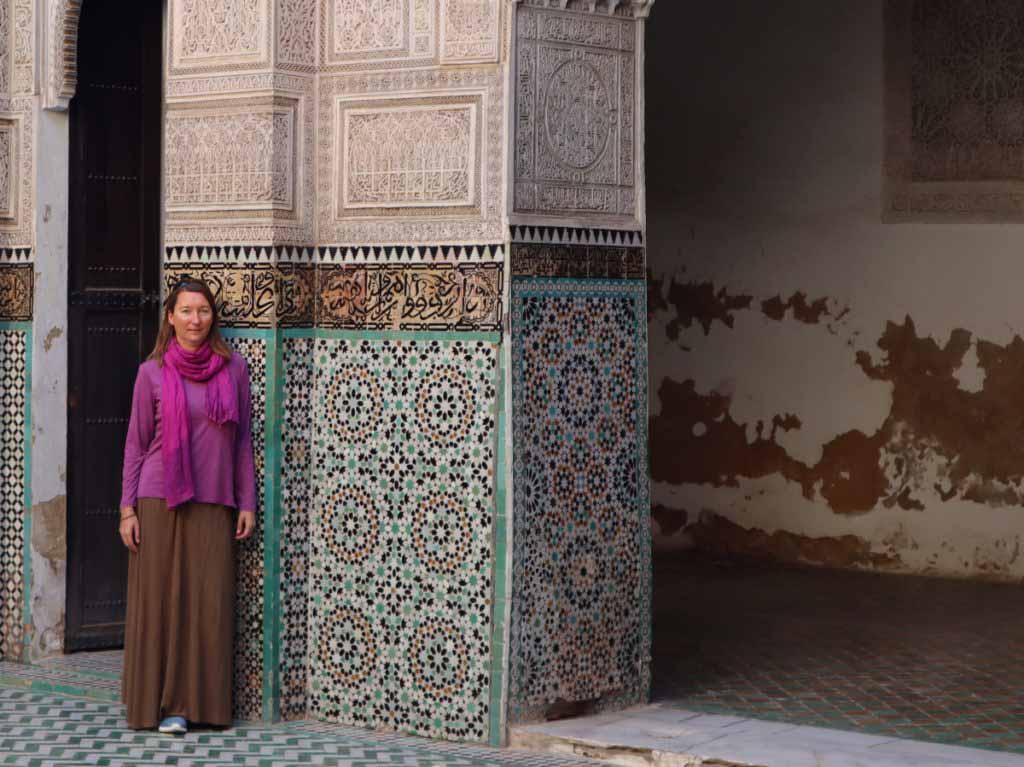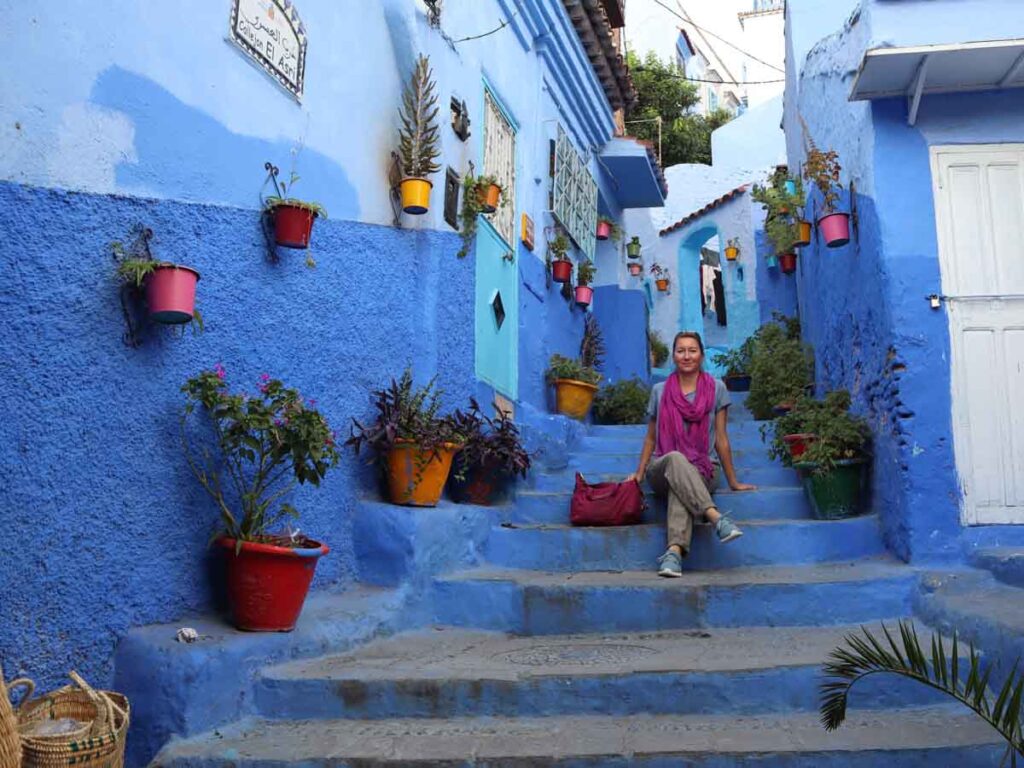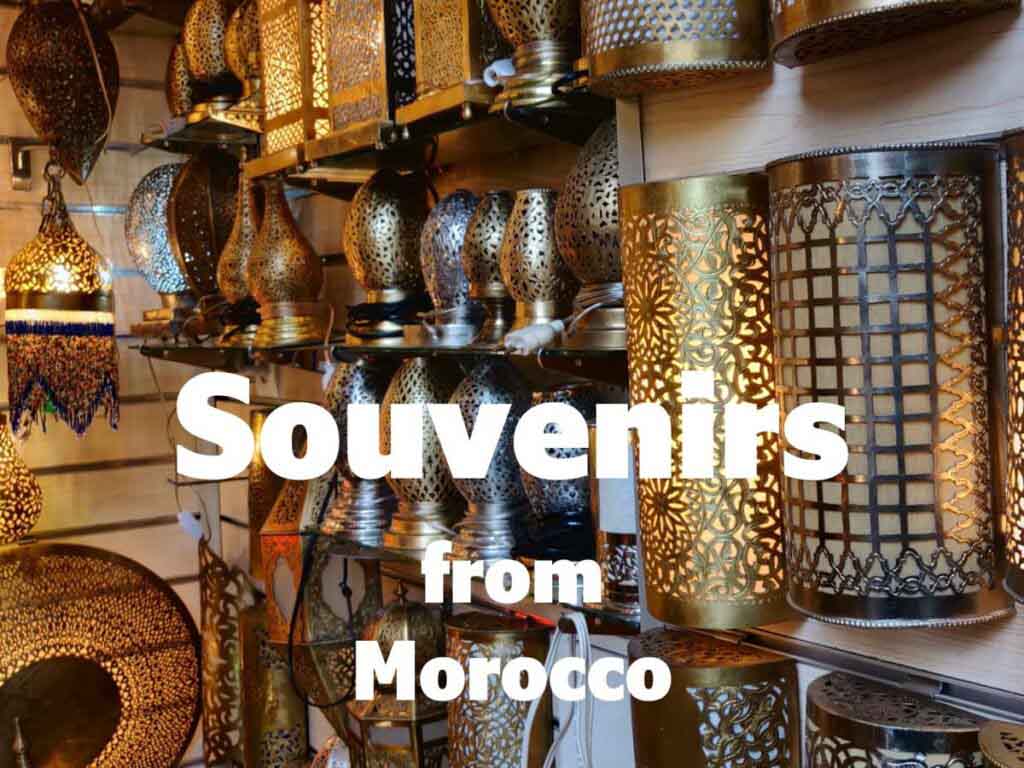Is Morocco safe for women travelling alone? This question is often asked, in Facebook groups but also directly to me. There are many negative rumours about the dangers for women in Morocco. But what is the reality?
Yes, Morocco is as safe for solo female travellers as, for example, European countries. In general, life seems to be more dangerous for women than for men. This is also true when travelling, and in Morocco. But that shouldn’t stop anyone from travelling to Morocco alone.
If you are a solo female traveller and don’t want to travel alone, but also not join a group, you can now book me as your “travel friend” through my company Berber Adventure Tours. I will plan and organise the whole trip and we will travel around the country together.
I’ve been living here for more than 6 years now, I occasionally travel alone through the country and have never experienced a situation in which I felt seriously unsafe. Except maybe in traffic. But that is not a “women’s issue”.
And also from the women I have met and spoken to over the years, I hear little serious danger. There is verbal harassment, but this is more annoying than dangerous. And there seem to be differences in who is being harassed or even who feels harassed.
For example, I can ignore catcalling very well. It doesn’t bother me at all. But some women feel personally harassed by it and the reaction to it then only leads to more shouting and whistling, a vicious circle. And a lot of stress for the woman.

The only place I feel rather unsafe is Casablanca. I’ve heard too many stories, from motorcyclists snatching your mobile phone out of your hand to attempted rapes while jogging. In the tourist areas, e.g. at the Hassan II Mosque, there are enough tourist police around, so you don’t need to worry too much though.
So for you to be able to travel in Morocco as relaxed as possible, I’m writing up my personal tips (tested by me).
My 10 tips for safe travel for women in Morocco
Say NO
Say no – often and firmly. And if necessary, say it very loudly. In Arabic, “no” is “la” and the French “non” is also generally understood. Germans usually don’t have a big problem with not being super nice and friendly. That seems to be more of a problem for the Americans and the British. But generally, many women have a problem saying no clearly. But it’s extremely helpful here in Morocco.
Whether in the souk when you just don’t want to buy anything, or in the medina when someone wants to show you the way. Always say no clearly and loudly.
Wear your resting bitch face
Have you heard of this? It means a facial expression that says “don’t come too close to me, friend”. Preferably paired with dark sunglasses so that no one can see what you’re looking at. That’s how I always walk through the souks, no matter where in Morocco, and am largely left alone. Women from the USA, on the other hand, who always smile at everyone in a friendly way and look them in the eye and definitely don’t want to be “rude”, are apparently harassed an extremely large amount. So don’t be afraid to be a little rude!
Just ignore catcalling
If someone is catcalling or whistling at you, the best tactic is to just ignore it. Don’t even flinch. Just keep walking as if you didn’t hear a thing. I often read the tip to put on noise-cancelling headphones, but I strongly advise against that.
Because with those, you won’t hear any real danger either. Like motorbikes or donkeys in the medina in Marrakech. Or whether someone is following you into remote alleys (also applies when jogging in the park in Germany or in traffic in general, if you ask me). If headphones, then without sound on and without noise cancelling. And just pretend not to hear anything.
In general, I find this behaviour of men extremely annoying, but not dangerous. I have never experienced anything further than the calling. They mainly aim for the woman’s reaction. As far as the safety of women travelling alone in Morocco is concerned, it doesn’t really matter.

Speak up
If the harassment gets too much for you, or if someone does get physically too close to you, don’t be afraid to get really loud. It doesn’t matter what language you use, just shout at the man and raise attention. Most Moroccans will come to your aid and in the medinas, especially in Marrakech, there are plenty of tourist police around, who will of course help.
Many travel guide books still advise against walking around alone in the medina of Marrakech. But this is no longer a problem (apart from the area around the tanneries, where you always (!!) get into trouble, see also my Marrakech article). The tourist police have been cracking down on men with bad behaviour for a few years now, and also with regard to the faux guides.
Wear “conservative” clothes
Although it shouldn’t matter, unfortunately women who show a lot of skin are seen as easy prey here and get harassed more accordingly. Again, it’s annoying, but not necessarily dangerous. But it’s definitely an invitation to be chatted up.
In Facebook groups, women often ask if there is a dress code in Morocco. And the answer, especially from Moroccan men, is always “no, you can wear whatever you want”. And of course, that’s not wrong. You don’t get arrested for wearing a short skirt. But you make yourself “fair game” for harassment. And these men, of course, like to see lightly dressed women, so they encourage it.
My experience is, the sun burns hotter on your skin than on thin, light cotton clothing. And many guides from the villages will invite the tourists home. But not if they are “inappropriately dressed”, as this would be a bad example for their wife and daughters. So, you might miss many chances to get in touch with the locals.
At the beach or hotel pool, however, it is perfectly OK to wear a bikini. But here, too, you can pretty much count on being stared at by everyone in the vicinity. Most Moroccan women go into the water fully clothed, they don’t even roll up their trouser legs.

Watch your bag
Pickpocketing and snatching your bag, mobile phone or backpack of course also happens in Morocco. But mainly in the big cities. Crossbody bags and backpacks in which you can store your valuables inside in a zipped pocket are best. On larger streets, you should carry your bag on the side away from the street, and also walk there if possible.
In the medina, in the hustle and bustle, you should also always have one hand on your bag, so you notice if someone is messing around.
Download the Maps.me app to your phone
With the maps.me app, you always know exactly where you are. It’s much more detailed than google maps, especially in the medinas. This way, you never have to rely on asking others for directions. The trick is to always look like you know exactly where you’re going. And if you don’t know where you’re going and need help, go into a shop or ask a woman. Men who approach you will often send you in the wrong direction only to “rescue” you later and ask for money.
Don’t be afraid to drive a taxi
Taxis are often shared here in Morocco, and more people are collected along the way to optimise their use. In terms of environmental protection, this makes a lot of sense. However, many female tourists are afraid of sitting in a car with several strange men.
I have never had a problem with that. In small taxis, only a maximum of 3 passengers are allowed, which means that the middle seat in the back always remains empty. And the big taxis are now almost all minivans with 6 seats. This means that no one really gets too close to you there either.
And, the Moroccan women take taxis, even shared ones with men they don’t know.

Book a guide
You often read that women travelling alone should book a guide to be safer. I would confirm this for the medina in Fez, where you definitely feel safer with a guide (but this is probably mainly a feeling, I don’t think it is really unsafe).
In the rest of the country, however, you can also travel well without a guide. And with younger, unmarried guides you always run the risk (no matter how old you are) of them getting a bit too close to you in the hopes for a visa to Europe (see below).
Attention, scam alert, the vow of love
A different kind of danger for women travelling alone in Morocco are the “head-over-heels in love” men. Since Europe, or North America, is still seen as the golden country here, men sometimes try to get a visa through a woman. In return, they swear great love, and some men are extremely patient getting there.
I have heard stories where, after years of a long-distance relationship, they got married, painstakingly obtained a visa, and as soon as they were both in Europe, the man was gone.
Of course, there are enough examples of things working out, but you should always be aware of the possibility that you are only being taken advantage of.
Here is a nice article that lists some red flags when it comes to Moroccan men.
You prefer to let others do the planning? I offer itinerary planning for your trip to Morocco! You can check out the details here.
Please note that some of the links above are affiliate links and, at no additional cost to you, I earn a small commission if you make a purchase. That income goes to supporting this website and keeping it free for you and everyone else!






1 Comment
WOW!!!!!!!!!!!
Its an excellent post, thank you so much for sharing with us. I hope you keep sharing this types of informative posts.